
AMM percussionist Eddie Prevost has presented weekly Workshop Concerts since 1999, here recording live at London's Cafe Oto in May, 2012 with a sextet of acoustic and electronic performers on violin, cello, theremin, zither, electronics, and percussion.
Out of Stock
Quantity in Basket: None
Log In to use our Wish List
Shipping Weight: 5.00 units
Sample The Album:
Jennifer Allum-violin
Ute Kanngiesser-cello
Grundik Kasyansky-theremin, electronics
Dimtra Lazaridou Chatzigoga-zither
Eddie Prevost-percussion
Daichi Yoshikawa-electronics
Click an artist name above to see in-stock items for that artist.
Label: Matchless
Catalog ID: MRCD87
Squidco Product Code: 19418
Format: CD
Condition: New
Released: 2013
Country: Great Britain
Packaging: Cardboard Gatefold
Recorded at Cafe Oto in London, England, May 21st, 2012, by Giovanni La Rovere.
"In recent years, the improvisation workshop that takes place in London has been written about quite a bit. For years however, the workshop, begun in 1999 by Eddie Prévost and convening every Friday since did not receive much attention. It was to some degree the beginning of a monthly series of concerts at Café Oto, occasions in which the experiments and practices of the workshop were allowed to spill out in front of an audience that brought the work of the workshop and its participants to slightly wider attention. Nothing new was really taking place- the workshop attendees had been playing together in London concerts for years, but somehow this series of concerts focussed the ear a little more on what was happening each week behind the closed (to audiences) door down in New Cross. It follows on then, that a CD release of recordings made of one of the Oto concerts makes sense, as a document of one period of particularly fertile activity in the workshop's evolution. In keeping with the communal, thoroughly democratic approach taken within the workshop, each of the Oto concerts was curated by one of the group, who decided who would play, and in which formations, the only stipulation being that (s)he could not play themselves. The concert that is presented in part here on this CD took place on 21st May 2012 and was curated by Seymour Wright.
Wright chose to present a format for the evening very close to that which the workshop takes each week. He chose six musicians whom, in his opinion "represented the (then current) workshop climate, energy and range". These were Jennifer Allum (violin), Ute Kanngiesser (cello), Grundik Kasyansky (theramin and electronics), Dimitra Lazaridou-Chatzigoga (zither), Eddie Prévost (percussion) and Daichi Yoshikawa (electronics). For the first half of the concert, and so also the first, long, thirty-four minute track here, Wright had the group form a circle, as they would at the workshop, and they played a series of moving duets, beginning with Yoshikawa and Allum, with Yoshikawa then replaced mid-flow by Kasyansky, and Allum then replaced by Lazaridou-Chatzigoga etc, so a kind of tag-team performance took place with no more than two musicians playing at any one time and ending with the return of Yoshikawa. Perhaps predictably, the end result is a bit of a mixed bag with no overall sense of structure but some nice little moments along the way. The opening duo of Yoshikawa and Allum works well for me- the severe contrast of bow against strings pitched alongside particularly brutal, lo-fi feedback, albeit controlled and sculpted expertly well is a nice one. Initial bleeps and bowstrokes split apart by silences soon coalesce into a writhing mass of twisting electronic wails and fervently streamed violin. The centrepoint of this performance, literally, is the zither of Lazaridou-Chatzigoga, around who m one of the nicest transitions takes place, her lightly buzzing drone and tinkling metallic strings fits equally well with the guttural splatter of Kasyansky's theramin as it does with the bowed metallic percussion of Prévost, who replaces him. The overall piece is naturally and obviously more a chain of different interactions than it is one continual dialogue, and so, listening, its impossible to divorce yourself from the processes taking place. It is always very clear where one musician stops and another begins, and the interest is often in hearing how the consistent part of each interchange adapts to the arrival of a new musician.
There then follows five brief trio performances. On the evening in question apparently every one of the possible trio formations was given time to play together. If my grasp of maths is good enough I think this would have resulted in twenty short performances, of which five, the longest of which is twelve minutes in length, are included here. These little vignettes result in some nicer, more rounded pieces of music, though the brevity of each never quite allows anything to fully develop. The Allum/Kasyansky/Prévost trio is a rich weave of buzzing tones, sounds all similar in tone and yet coming from quite different sources. The Kasyansky/Prévost/Yoshikawa set however is a different affair altogether, with Prévost adding light touches from his tam tam as Yoshikawa blasts splatters of feedback and Kasyansky adds sampled moments of conversation and bits of music into the somewhat raucous equation. My favourite however may just be the Allum/Chatzigoga-Lazaridou/Kanngiesser all strings trio who intertwine little rhythmic patters, murmuring, atmospheric buzzes and softly coloured shimmering around one another to produce what is probably the most naturally coherent piece here.
The truth is though, nothing on this album particularly fails. Everything hits a standard, and throughout there is a sensation of pushing, nudging and constantly challenging one another in public, just as the workshop pushes people to do in private every Friday night. This isn't just a night of improvised music, its a performance by a group of very familiar musicians, who rather than settle into any one routine seek to do something different each time they come together. Whether they always succeed is debatable, but there is no doubting the intent, and this album is a nice snapshot of that endless, ongoing work in progress."-Watchful Ear 2013
Artist Biographies
• Show Bio for Jennifer Allum "Jennifer Allum is a London-based violinist specialising in experimental and improvised music." ^ Hide Bio for Jennifer Allum • Show Bio for Ute Kanngiesser "Ute Kanngiesser has played cello since early childhood, and for more than a decade, has only played unscripted, improvised music - solo and in collaboration with other musicians and composers in London and internationally. An important part of her work has developed in relationship to other art forms such as writing, dance, film, and site specific performance. More recently, she has begun to experiment with open form compositions, writing semi-graphic scores as a way of recording music, that can be retrieved later on and in new ways. Recent collaborations have been with Evie Ward, Daniel Blumberg, Billy Steiger, Tom Wheatley, Crystabel Riley, Seymour Wright, Paul Abbott, Keira Greene, John Butcher, Eddie Prévost and Jennifer Allum." ^ Hide Bio for Ute Kanngiesser • Show Bio for Grundik Kasyansky "Grundik Kasyansky (Moscow, Tel-Aviv, NYC) composes and improvises live electronic music, sound installations, and sound for film, theatre and dance. He formed Grundik+Slava (http://www.grusla.com) together with Slava Smelovsky in Israel in 1995. The duo quickly emerged as one of the most respected experimental outfits in Israel. Their music is published through various labels in Israel and EU. In May 2006 Grundik released solo full-length album "Light and Roundchair" through the Portuguese label Creative Sources. Grundik's sound installations were presented at the Herzelia Museum of Art (Israel), Diapason Gallery (NY), Art in General (NY), CAVE (NY), Andrea Meislin Gallery (NY), Galleria Pack (Italy), Digitalis 2 (Canada) and Pixxelpoint 2002 (Slovenia). As sound designer he worked for numerous award-winning films and theatre productions. He received a Finishing Funds 2006 award from the Experimental Television Center." ^ Hide Bio for Grundik Kasyansky • Show Bio for Eddie Prevost "Eddie Prévost (Edwin John) (born Hitchin, Hertfordshire, England, 22 June 1942) is an English percussionist noted for founding and participating in the AMM free improvisation group. Of Huguenot heritage, Prévost's silk weaving ancestors moved to Spitalfields in the late 17th century. Brought up by single parent mother (Lilian Elizabeth) in war-damaged London Borough of Bermondsey. He won a state scholarship to Addey and Stanhope Grammar School, Deptford, London, where to-be drummers Trevor Tomkins and Jon Hiseman also studied. Music tuition, however, was limited to singing and general classical music appreciation. Enrolled in the Boy Scouts Association (19th Bermondsey Troop) to join marching band. As a teenager began to get involved with the emerging youth culture music; skiffle, before being introduced to a big jazz record collection of a school friend with rich parents. With a bonus from the florist, for whom Prévost worked part-time after school, purchased his first snare drum from the famed Len Hunt drum shop in Archer Street (part of London's theatre land). After leaving school at sixteen Prévost was employed in various clerical positions whilst continuing his musical interests. Although, by now immersed in the music of bebop, his playing technique was insufficient for purpose. New Orleans style jazz ('trad') offered scope for his growing musical prowess. He played in various bands mostly in the East End of London. It was during a tenure with one of these bands he met trumpeter David Ware, who also shared a passion for the hard-bop jazz music. In their early twenties they later formed a modern jazz quintet which ultimately included Lou Gare, who had recently moved to London from Rugby and was a student at Ealing College of Art and a member of the Mike Westbrook Jazz Orchestra. AMM was co-founded in 1965 by Lou Gare, Eddie Prévost and Keith Rowe. They were shortly joined by Lawrence Sheaff. All had a jazz background. They were, however, soon augmented by composer Cornelius Cardew. Thereafter, Cardew, Gare, Prévost and Rowe remained as basis of the ensemble until the group fractured in 1972. Other more formally trained musicians were to enter the ranks of AMM after Cardew's departure. Those to make significant contributions were cellist Rohan de Saram and, in particular, pianist John Tilbury. The latter was a friend and early associate of Cardew and later became his biographer. In contrast to many other improvising ensembles, the core aesthetic of the ensemble is one of enquiry. There was no attempt to create a spontaneous music reflecting, or emulating, other forms. The AMM sound-world emerged from what Cardew referred to as "searching for sounds". For Prévost, the following would become the core formulation which he would explore during his subsequent musical career and explain and develop in various writings (see bibliography) and workshop activities. We are "searching" for sounds and for the responses that attach to them, rather than thinking them up, preparing them and producing them. In the 1980s, in response to various workshops and lectures, Prévost first formulated the twin analytical propositions of heurism and dialogue as defining concepts for an emergent musical philosophy, whilst acknowledging Cardew's construction (above). This line was explored and constantly redefined much through the London workshop experience, as his articles and his books show. (see below: The London Workshop). His 2011 book - The First Concert: an Adaptive Appraisal of a Meta Music - is described as a view "mediated through the developing critical discourse of adaptionism; a perspective grounded in Darwinian conceptions of human nature. Music herein is examined for its cognitive and generative qualities to see how our evolved biological and emergent cultural legacy reflects our needs and dreams. This survey visits ethnomusicology, folk music, jazz, contemporary music and "world music" as well as focusing upon various forms of improvisation - observing their effect upon human relations and aspirations. However, there are also analytical and ultimately positive suggestions towards future metamusical practices. These mirror and potentially meet the aspirations of a growing community who wish to engage with the world - with all its history and chance conditionals - by applying a free-will in making music that is creative and collegiate." (back cover of First Concert)History with AMM When, in the early 1970s, Cardew and Rowe began to devote their time and energy to espousing the political doctrine of an English Maoist party a fracture occurred in the ensemble leaving the rump of Lou Gare and Eddie Prévost, who continued in a duo form making various concerts and festival appearances and leaving a legacy of two recordings. At the end of the decade a rapprochement was attempted and for a short while the quartet began playing together again. It did not last. Lou Gare departed and moved from London to Devon. While Cardew's commitment to politics made his complete withdrawal inevitable. It was during this period Prévost took an Honours Degree at Hatfield Polytechnic, exploring and developing his interests in history(especially East Asian) and philosophy. Musically, this left Rowe and Prévost playing together. Their recording for German ECM label "It had been an ordinary enough day in Pueblo, Colorado" is the single example of their duet period. By the late 1970s a reawakened association with John Tilbury was cemented into his permanent place in AMM. He is featured on all subsequent AMM performances and recordings (as is Prévost). In 2002 a more lasting schism occurred leading to Rowe departing from AMM and leaving Tilbury to continue with Prévost.Percussion The investigative dynamic of AMM leads a musician to seek out new material. It is the fabric and constitution of stuff that is considered as more important than any historical or cultural heritage. It is Prévost's constant exploration's that has produced the range of sounds associated with his work, particularly within AMM and its extension to the many workshop ensembles. This philosophy leads to what Seymour Wright has so aptly described as the "awkward wealth" of investigation.(citation) It is a position of constant examination and artistic redress.Drumming Drumming with AMM was principally replaced by discreet percussion work which by and large relied on sound and texture rather than rhythm. At the time of the Gare/Prévost period this position was reviewed. However, it was plain the AMM aesthetic, characteristic of the early formative period, was to have its effect. The "searching" method prevailed. And, whereas a saxophone and drums duet led to a more jazz-like expectation (amplified by Gare's reversion to a more rolling and modal post-Rollins kind of approach). Prévost's playing was noted to have acquired some unusual qualities. This lead one reviewer (Melody Maker) to remark in 1972: "His free drumming flows superbly making use of his formidable technique. It's as though there has never been an Elvin Jones or Max Roach." Drumming however, was to take a back seat in Prévost's musical output as AMM developed and began to acquire and enhance its innovative reputation. And, apart from rare musical outings he did not commit himself, more fully, to the jazz drum kit again until 2007/08. Although, continuing to play percussion, a jazz-inflected project with Seymour Wright and Ross Lambert in an ensemble called SUM was the precursor of a period more devoted to drumming. Apart from various ad hoc ensembles, this led to various recordings including a series a CDs entitled Meetings with Remarkable Saxophonists. At date this consists of four volumes featuring Evan Parker, John Butcher, Jason Yarde and Bertrand Denzler respectively.The London workshop Over the years Prévost has conducted many improvised music workshops. However, as a result of a seminar he conducted at The Guelph Jazz Festival, Canada in 1999, Prévost began to formulate a framework for a workshop based upon a more thorough working of AMM principles and practice. He wrote: "I had, of course, already had long previous experience of improvisation and experimental music mostly through my participation in AMM and working closely with the composers Cornelius Cardew and Christian Wolff. From this experience I had begun a working hypothesis in my book 'No Sound is Innocent'. However, there is always more to discover. On my long flight across the Atlantic, I intuited more could be found out. Not through introspective, if rational, thought alone but, through discovery or experimentation: praxis. It can, of course, be very discomforting to watch a proposition die in practise. No theory is worth its salt unless it is fully tested. The best ideas - this experience suggests - emerge through activity. Hence, the working premise of the improvisation workshop had to be based upon an emergent set of criteria constantly tested within the cauldron of experience. In November 1999 I made it known that a free improvisation workshop would start weekly in a room at London's Community Music Centre, near London Bridge. Originally, under the auspices of the London Musicians' Collective, [...] these premises were found and minimal lines of communication to possible interested parties were opened. The first Friday evening (not thought to be an auspicious evening of the week because people 'went out' to have a good time) duly arrived. The room was available precisely because no one ever hired it on a Friday! I waited. Edwin Prévost, The First Concert: an Adaptive Appraisal of a Meta Music, (2011) p.115/6 Since then the workshop has continued weekly. It has a strong collegiate atmosphere. Those who participate are themselves formulating and refining a programme of enquiry and empathy. The working premise is one of 'searching for sounds' (Cardew). The emphasis is upon discovery and not on presentation. It is a place to risk failure and develop an open and continuing processive relationship with the materials at hand and other people. As hoped and anticipated, Prévost's continual presence is no longer required. In his occasional absences senior colleagues (in particular Seymour Wright and Ross Lambert) more than adequately move the project along. To date there have been over five hundred people who have attended the weekly workshop in London, representing over twenty different nationalities. This activity is further augmented by occasional forums for discussion and London's Cafe OTO programmes ensembles drawn from the London workshop every month. There have also been occasional extended periods of collective workshop musical experimentation. And, in 2010 there was a residential workshop held in Mwnci Studios on the Dolwillym Estate, west Wales. (see various other texts: including Philip Clark's Wire piece)] There are now workshops based upon this general premise functioning in Hungary, Greece, Slovenia, Japan, Brazil and Mexico. Mostly started by alumni of the original workshop in London.Intermediate and experimental compositions Cardew's 'Treatise' etc. Cardew's introduction to AMM in 1966 owes something to his search for musicians to perform his (then unfinished)193 pages long graphic score, 'Treatise'. The AMM musicians (at the time Lou Gare, Eddie Prévost, Keith Rowe and Lawrence Sheaff) seemed perfect candidates to embrace this bold work of imagination. And, with others (including later AMM member John Tilbury) all participated in the premier performance at the Commonwealth Institute on 8 April 1966 (check year!). But the initial impact of Cardew's induction into AMM was to bring a halt to his compositional aspirations. However, over the years since, AMM has had a long relationship with particular indeterminate and experimental works particularly those of Cardew - especially after his death in 1983. Most prominently 'Treatise'. Other favourites were 'Solo with Accompaniment', 'Autumn '60', Schooltime Compositions' and the text piece Cardew wrote particularly for AMM, 'The Tiger's Mind.' These pieces (which for a long time had been neglected within 'new' musical schedules), and occasionally others by Christian Wolff and John Cage, were sometimes played in conjunction with an AMM improvisation. Some concert promoters were, it seems, more interested in these pieces being played than the principal musical output of AMM. Hence, Prévost's ambivalence about the inclusion of such material in concert programmes. The creative search for primary performance material was diverted, in such works, in keeping with the demands of the notation or compositional scheme. This inevitably prevented the musician from (to use Cardew's own words) "being at the heart of the experiment". (Cardew, 'Towards an Ethic of Improvisation; CC R p. 127).Matchless Recordings and Publishing In 1979 Prévost began the recording imprint of Matchless Recordings and Publishing. Although there had been some interest by commercial labels to take on the new improvising music of the late 1960s onwards, it proved not to be satisfactory or long-lasting. Together with a number of similar initiatives, e.g. Incus Records in Britain and ICP (?) in the Netherlands, Prévost sought to take control of their own work. In the early years this was slow and painstaking work. Some years little was produced and few small sales accrued. Gradually however, Matchless recordings began to be the documenting and disseminating base for a developing body of work. Most of the AMM output is featured on Matchless and this has diversified (more so in recent years) to include other associated artists and ensembles.[see matchlessrecordings.com] In 1995, following the same principal for internal control over the output, production and dissemination of material, the publishing imprint Copula was inaugurated. The first publication was Prevost's No Sound is Innocent. Later followed by Minute Particulars in 2004. 2006 saw the publication of Cornelius Cardew: A Reader (edited by Prévost) which was a collection of Cardew's published writings accompanied by commentaries by a number of musicians associated and inspired by Cardew. This volume was an essential companion to John Tilbury's comprehensive biography Cornelius Cardew: a life unfinished which was also published by Copula in 2008. The most recent book to appear on this imprint is Prévost's The First Concert: An Adaptive Appraisal of a Meta Music (2011). Eddie Prévost is the cousin of the ex-docker shop-steward and left-wing political activist also named Eddie Prevost." ^ Hide Bio for Eddie Prevost • Show Bio for Daichi Yoshikawa "Daichi Yoshikawa is a Japanese sound artist based in London and Berlin. A former participant of workshops organised by AMM co-founder Eddie Prevost and sound artist David Toop, Yoshikawa's distinct sound comes from feedback systems generated between homemade assemblages of speakers, contact microphones, and various found objects. Developing his ability as an improviser through years of attendance at Prevost's weekly workshops, Yoshikawa is singularly unique in his facility to wield electronic feedback as an instrument capable of both dialogic potential and genuine musicality in a group setting. Combining the collaborative sensitivity of a player like Toshimaru Nakamura with a techno and noise-derived penchant for enamel-peeling feedback tones and lurching metallic rhythms, Yoshikawa's electroacoustic practice creates brutalist landscapes of sound from the space between noise and silence. Yoshikawa is also part of the ensemble lll人, a London-based group with Seymour Wright and Paul Abbott, and has collaborated with Joel Grip, Antonin Gerbal, Samo Kutin, Lee Patterson and Rie Nakajima." ^ Hide Bio for Daichi Yoshikawa
11/18/2024
Have a better biography or biography source? Please Contact Us so that we can update this biography.
11/18/2024
Have a better biography or biography source? Please Contact Us so that we can update this biography.
11/18/2024
Have a better biography or biography source? Please Contact Us so that we can update this biography.
11/18/2024
Have a better biography or biography source? Please Contact Us so that we can update this biography.
11/18/2024
Have a better biography or biography source? Please Contact Us so that we can update this biography.
Track Listing:
1. Moving Duets DY/JA/GK/Dl-C/EP/UK/DY 34:02
2. Trio Ja/Gk/Ep 7:36
3. Trio Gk/Ep/Dy 12:30
4. Trio Ja/Dl-C/Uk 7:22
5. Trio Dl-C/Uk/Gk 4:22
6. Trio Ja/Dy/Ep 4:33
Improvised Music
Free Improvisation
Electro-Acoustic
Electro-Acoustic Improv
Matchless
London & UK Improv & Related Scenes
Septet recordings
Search for other titles on the label:
Matchless.


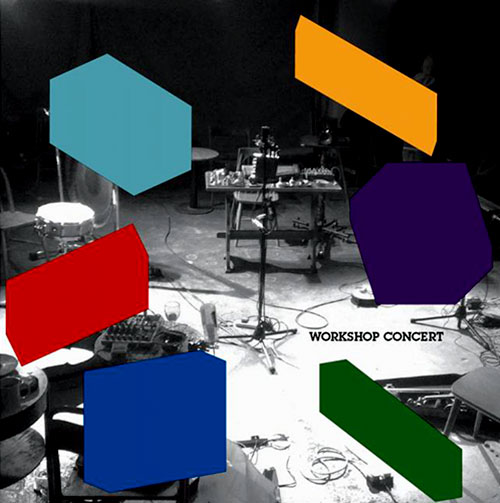

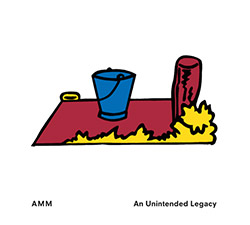
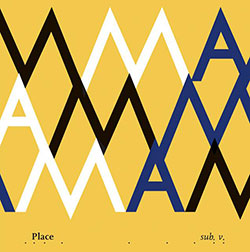

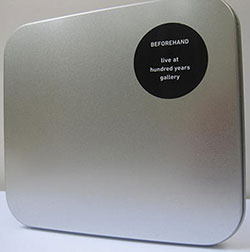
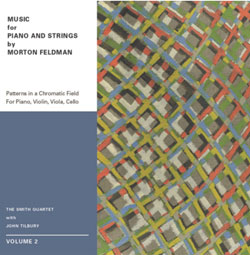

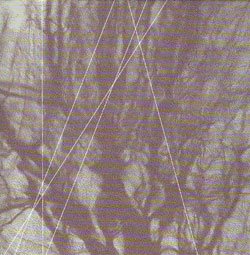
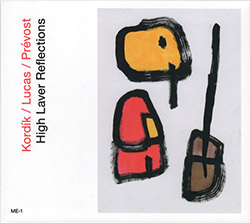

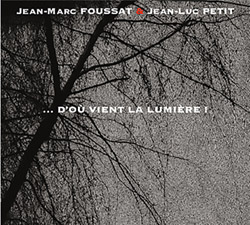



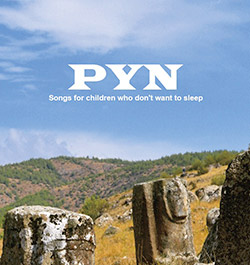








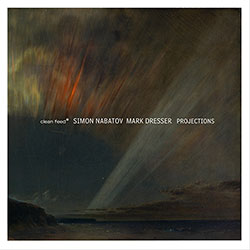
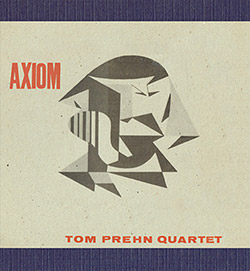















![Barker / Parker / Irabagon: Bakunawa [VINYL]](https://www.teuthida.com/productImages/misc4/35533.jpg)
![Blaser, Samuel / Marc Ducret / Peter Bruun: Dark Was The Night, Cold Was The Ground [VINYL 10-inch]](https://www.teuthida.com/productImages/misc4/35492.jpg)










![Warren, Kenny (Warren / Hoffman / Ellman): Sweet World [VINYL]](https://www.teuthida.com/productImages/misc4/35451.jpg)


![Blake, Ran / Dave Knife Fabris: Live Amsterdam 2006, First Visit [CD + POSTCARDS]](https://www.teuthida.com/productImages/misc4/35275.jpg)
![Sanna, Claudio: Compositori Sardi Contemporanei II [2 CDs]](https://www.teuthida.com/productImages/misc4/35317.jpg)












![Nevai, Nandor: <<The PRICE of FRONTIER>> Book 1: FULK [BOOK + 4 CDs]](https://www.teuthida.com/productImages/misc4/35464.jpg)
![Nevai, Nandor: <<The PRICE of FRONTIER>> Book 2: MARTIAL [BOOK + 4 CDs]](https://www.teuthida.com/productImages/misc4/35465.jpg)
![Nevai, Nandor: <<The PRICE of FRONTIER>> Book 3: JASSOM [BOOK + 4 CDs]](https://www.teuthida.com/productImages/misc4/35466.jpg)
![Nevai, Nandor: <<The PRICE of FRONTIER>> Book 4: HARD-WON [BOOK + 4 CDs]](https://www.teuthida.com/productImages/misc4/35467.jpg)






![DNS: Taking Big Bites Of The Khandas Three Cafes Deep [2 CDs]](https://www.teuthida.com/productImages/misc4/35334.jpg)




![Cleaver, Gerald: The Process [VINYL]](https://www.teuthida.com/productImages/misc4/34966.jpg)




![Alva Noto: HYbr:ID II [VINYL 2 LPs]](https://www.teuthida.com/productImages/misc4/35201.jpg)

![Baron, Derek / Luke Martin: Distinct and Concealed [CASSETTE + DOWNLOAD]](https://www.teuthida.com/productImages/misc4/35079.jpg)

![Lyle, Erica Dawn : Colonial Motels [CASSETTE + DOWNLOAD]](https://www.teuthida.com/productImages/misc4/35080.jpg)







![Alva Noto: HYbr:ID III [VINYL 2 LPs]](https://www.teuthida.com/productImages/misc4/35011.jpg)
![Kubisch, Christina / Trondheim Voices: Stromsanger 2022 For Six Voices And Electromagnetic Waves [VINYL]](https://www.teuthida.com/productImages/misc4/34628.jpg)








![Zurria, Manuel: Fame di Vento [3 CDs]](https://www.teuthida.com/productImages/misc4/35167.jpg)

![Granberg, Magnus / Nattens Inbrott / Skogen: Holde Traume, Kehret Wieder! [2 CDs]](https://www.teuthida.com/productImages/misc4/35038.jpg)
![Frey, Jurg: Outermost Melodie [2 CDs]](https://www.teuthida.com/productImages/misc4/35039.jpg)

![Pavone, Jessica: Reverse Bloom [VINYL]](https://www.teuthida.com/productImages/misc4/34895.jpg)




![Modney (Modney / Wooley / Gentile / Roberts / Pluta / Symthe / ...): Ascending Primes [2 CDs]](https://www.teuthida.com/productImages/misc4/34852.jpg)








![Elephant9 with Terje Rypdal: Catching Fire [VINYL 2 LPs]](https://www.teuthida.com/productImages/misc4/35355.jpg)
![Deerlady (Obomsawin, Mali / Magdalena Abrego): Greatest Hits [VINYL]](https://www.teuthida.com/productImages/misc4/34876.jpg)




![Haino, Keiji: Black Blues [2 CDs]](https://www.teuthida.com/productImages/misc4/35109.jpg)



![Surplus 1980: Illusion of Consistency [CD]](https://www.teuthida.com/productImages/misc4/35069.jpg)
![Staiano, Moe: Away Towards the Light [VINYL + DOWNLOAD]](https://www.teuthida.com/productImages/misc4/35037.jpg)




![Caveira (Gomes / Sousa / Abras / Ferrandini): Ficar Vivo [VINYL]](https://www.teuthida.com/productImages/misc4/34643.jpg)
![Gregg, J. J. / David Van Auken: Lunar Prairie [CD w/ DOWNLOAD]](https://www.teuthida.com/productImages/misc4/34611.jpg)

![Coultrain: Mundus [VINYL]](https://www.teuthida.com/productImages/misc4/32439.jpg)
![Mattin: Songbook #6 [VINYL]](https://www.teuthida.com/productImages/misc4/27317.jpg)
![Punkappella: Wake Up [7-inch VINYL]](https://www.teuthida.com/productImages/misc4/17519.jpg)
![Residents, The: WARNING: UNiNC.: Live And Experimental Recordings 1971-1972 [VINYL 2 LPs]](https://www.teuthida.com/productImages/misc4/31521.jpg)
![Coultrain: Phantasmagoria [VINYL]](https://www.teuthida.com/productImages/misc4/30142.jpg)
![Lennon, Sean Ono: Asterisms [VINYL]](https://www.teuthida.com/productImages/misc4/34517.jpg)

![Rotem Geffen: The Night Is The Night [VINYL]](https://www.teuthida.com/productImages/misc4/34631.jpg)
![Coley, Byron: Dating Tips for Touring Bands [VINYL]](https://www.teuthida.com/productImages/misc4/17906.jpg)

![Lost Kisses: My Life is Sad & Funny [DVD]](https://www.teuthida.com/productImages/misc4/lostKissesDVD.jpg)